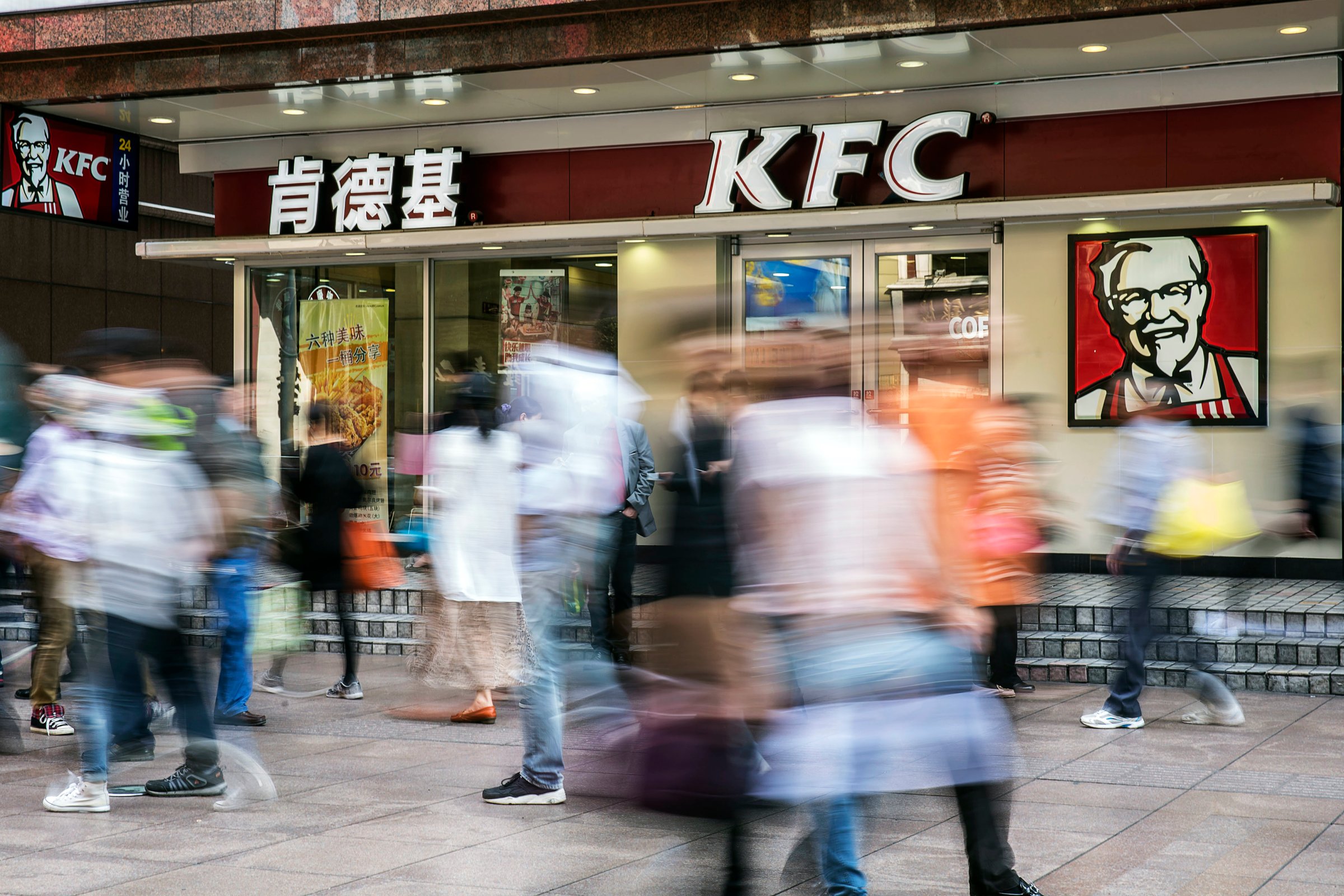
On Monday, in the province that gave birth to Chairman Mao, refusing to eat fried chicken became a political act. A group of protesters in Hunan province’s Chenzhou city targeted a KFC to express their ire at a July 12 ruling by an international tribunal that rejected China’s historic claims to the South China Sea. According to social-media posts, around a dozen middle-aged women holding a Chinese flag urged passersby to boycott the American fast-food chain, before police dispersed them.
KFC has served in China as a convenient symbol of American cultural dominance—along with caloric poultry pleasure. But none of the Permanent Court of Arbitration’s panel members were American. The South China Sea case itself was lodged by the Philippines. However, the U.S. has called for China to respect the ruling, and the American military is treaty bound to protect the Philippines during certain conflicts. Thus Chinese state media blame the U.S. for somehow orchestrating the tribunal’s sweeping dismissal of Beijing’s claims to the contested waterway.
In the wake of the international panel’s judgment, which Beijing has vowed to ignore, China announced military drills in the South China Sea. The head of the nation’s navy also vowed that China would continue building artificial islands in disputed waters. But so far, the award has not catalyzed the kind of organized mass protests that occurred during previous conflicts with the U.S. and Japan. Since such demonstrations in China cannot take place without the consent of local authorities, it appears that Beijing doesn’t want negative public opinion to spill out onto the streets.
Another small anti-KFC rally occurred on Sunday in a city in north-central Hebei province, where patriots held up a banner that read “Eating American KFC is a loss of face for our ancestors,” according to photos on social media. Still, the chicken campaign was hardly in the same league as hundreds of protestors throwing rocks at American and Japanese diplomatic missions or torching Japanese-brand cars. Chinese online censors scrubbed mention of the KFC protests from local chatrooms, presumably to prevent copycat chicken boycotts.
Indeed, apart from the odd online video in which Chinese smash their iPhones or urge a boycott of Philippine dried mangoes, no protest groundswell has taken off in China. On Tuesday, despite reports that Chenzhou KFCs had closed after what one Internet wag dubbed the “aunties’ chicken protest,” staff at four of the city’s outlets said they were open. “I haven’t heard of that [protest],” said one employee at the KFC on Guoqing Road. “I am not the perfect person to answer your questions.”
—with reporting by Yang Siqi/Beijing
More Must-Reads from TIME
- Cybersecurity Experts Are Sounding the Alarm on DOGE
- Meet the 2025 Women of the Year
- The Harsh Truth About Disability Inclusion
- Why Do More Young Adults Have Cancer?
- Colman Domingo Leads With Radical Love
- How to Get Better at Doing Things Alone
- Michelle Zauner Stares Down the Darkness
Contact us at letters@time.com